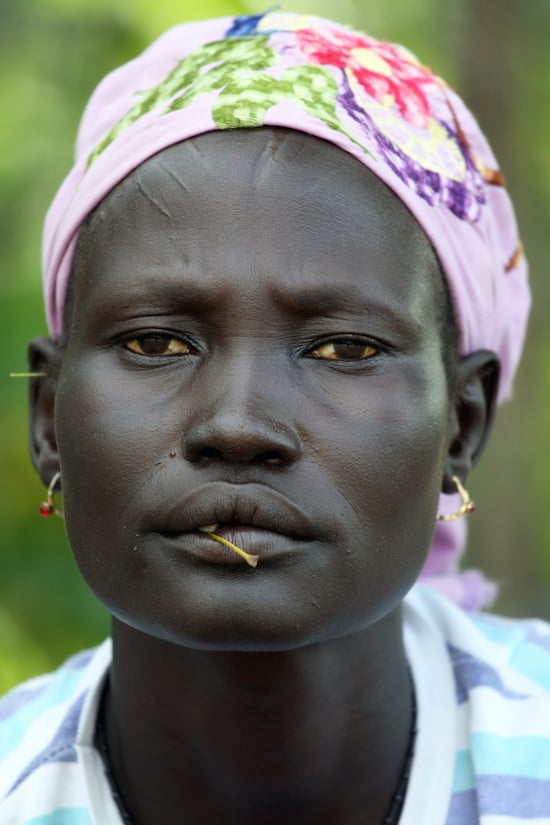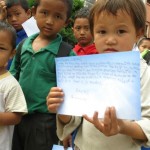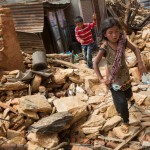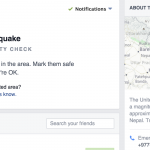This morning, I was minding my own business just enjoying a cup of coffee while perusing Facebook. I’d already prayed today’s gospel and determined that I’d like to be one of the “righteous ones” who “shine like the sun”. I had my to do list ready and my plans for the day set. And then I saw my friend Kim’s Facebook post. In it she shared a link to the following video and her post began with the words, “I know no one will watch this but maybe a couple of people will.”
Nicholas Kristof travels to South Sudan, where a famine brought on by drought and civil war threatens five million people.
“I’m in a rush,” I thought to myself. “I’ll watch it later.” I scrolled away from Kim and the starving Sudanese to laugh at something sarcastic another friend had posted.
And then I scrolled back to Kim. And I watched the video. And I cried – because I’d almost fulfilled Kim’s “I know no one will watch this” prophesy.
If you’ve taken the four minutes and twenty six seconds to watch the video, you probably feel like I do right now. Perhaps you’re asking, as I did, “What could I possibly do to help?”

Blessedly, there is a good answer to that question!
We can:
- Actively unite our families in prayer with the families of South Sudan. Today, at dinner perhaps, show your children a map of South Sudan. Tell them in age appropriate terms what is happening in that country. Decide, as a family to make a small sacrifice and pray as a family for at least one week for an end to starvation in South Sudan.
- Make a small gift to Catholic Relief Services/Caritas, who are actively working in the region. That sacrifice we made in number one? Say for example skipping one fast food meal this week, could feed starving women and children in South Sudan. Donations to aid directly for the emergency in South Sudan can be made to http://donate.crs.org/
SouthSudan
Since January 2015, CRS and Caritas teams have:
- Distributed 6,656 tons of food and nutritional supplements to 265,019 people
- Received 992 tons of food from Ethiopia for distribution in Akobo County
- Repaired 54 boreholes, formed 41 Water User Committees and trained 48 committees at the local level for improved access to clean water
- Formed 61 Savings and Internal Lending Communities (SILC) groups and provided training to 34 groups
- Served 13,162 people through food-for-work activities
- Trained 130 community hygiene promoters, who disseminated hygiene messages to 33,238 beneficiaries.
- Distributed household, hygiene and shelter kits to 13,458 families in Akobo, Twic East, Pochalla, Duk, Nyirol and Bor counties.
- Trained 4,000 farmers on post-harvest storage and provided 4,000 bags of grain in Bor County
- Continued collaboration with the Church and other organizations, including the South Sudan Peace and Reconciliation Commission, to support peacebuilding and reconciliation
Kim, the friend I mentioned above, serves as CRS’ Communications Officer, Global Emergencies and Sub-Saharan Africa. She has shared the following important talking points with me – please read these and take them to heart:
- South Sudan needs peace and the U.S should do everything in its power to continue pushing for a sustainable peace. Without peace, farmers can’t farm, children can’t go to school, people can’t work. Peace is the only durable solution to hunger.
- In addition to the life-saving emergency assistance, long-term development must continue. The South Sudanese are an incredibly resilient people who want to be self-sufficient. There must be robust funding to continue this important work, as well as humanitarian access to carry out the programs.
- The situation is dire. Millions of people have been displaced from their homes by violence. Until they feel safe to return home, they generally have no way to provide for themselves or their families. What’s needed now is emergency assistance in terms of food and safe shelter but also an end to the violence to people can get back to their lives.
- The Church has always played a central role in South Sudan. For decades, it has been the provider of services – education and health, for example – and is continuing this important role today. Because of its reputation of serving the people and its vast network in the country, the Church reaches a great number of people and CRS continues to work alongside it to help the most vulnerable in this conflict.
I’m asking you today to help me prove that we can and will pay attention to even the most challenging stories that confront us. I don’t really want to be the kind of person who sees a story like this and then just goes on with business as usual. I don’t want to believe that starvation in South Sudan is too big a problem to confront. I want to believe that we who are called to be “righteous” and to “shine like the sun” can and will stop, pay attention and choose to do something.
Give a gift today at http://donate.crs.org/

August 27, 2014 – Bor County (Kondai Village – Makuach Payam), South Sudan – Beneficiary Ayen Nhial Piel, 25. Thousands of South Sudanese became internally displaced refugees in Jonglei and Juba following the outbreak of fighting between forces loyal to South Sudan president Salvar Kiir and his ex-vice president Rick Machar in December 2013. To help displaced and conflict-affected households return home and start the recovery process, Catholic Relief Services (CRS) has engaged in emergency response activities. In addition to helping these households re-engage in their livelihoods and attain food security through emergency food rations, CRS has been working to educate beneficiaries on cholera prevention. CRS is also committed to helping beneficiaries return to life as normal by providing them with farm tools and seed.
The following is an interview with Wal Garang Dhiek, 42 and his wife Ayen Nhial Piel, 25:
Please describe your current situation and the reasons for it.
Mr. Dhiek: Life was good prior to the crisis but currently it is not as good. We used to have eight cows and twelve goats; all stolen by the rebels. The children depended upon the milk from the cows.
What is the hardest?
Mrs. Piel: Illness is the hardest. The children fall sick and there is no money to see a doctor; they must recover at home. Currently both the baby and my husband’s mother are sick. We think the baby may have malaria. His mother is having problems with her back.
How has the conflict and the violence affected you and your family?
Mr. Dhiek: We had to travel far to seek safety; we fled to Mathinag Island and stayed for three months. We suffered hunger and the barn was burned. The rebels killed my brother who was a soldier.
What are your biggest needs at the moment?
Mrs. Piel: We need help with the sickness. We can’t afford money for medicine. The children need more nutritious food; there’s no substitute for the lack of milk. Our main diet is sorghum.
How do you feel about this food distribution?
Mr. Dhiek: It’s good but we wish it were a little bit more. Fifteen kilograms per person each month is small.
What would it take for South Sudanese to no longer need assistance?
Mr. Dhiek: We will no longer need assistance when the conflict ends and we become self-sufficient.
How did you feel three years ago when South Sudan gained independence?
Mr. Dhiek: I felt very excited.
What were your hopes?
That we would truly be free and would no longer know war. We would be able to do everything to make our lives better.
How do you feel now?
I’m not happy. We did not expect this war with the pain of having our property looted and the barn destroyed.
Do you think peace is possible?
With the will of God peace is possible.
What do you want others to know about what is happening in South Sudan.
Mrs. Piel: Those South Sudanese who fled to other countries should know they can now return. The world should know that our land is troubled and we need help. How are you benefitting from CRS’ work?
Mrs. Piel: CRS has helped us avoid hunger with the food distribution and given us tools and seeds to help us become self-sufficient.
What gives you hope? Mrs. Piel: The people who help us give us hope. God gives us hope.
Images copyright Catholic Relief Services, used with permission












